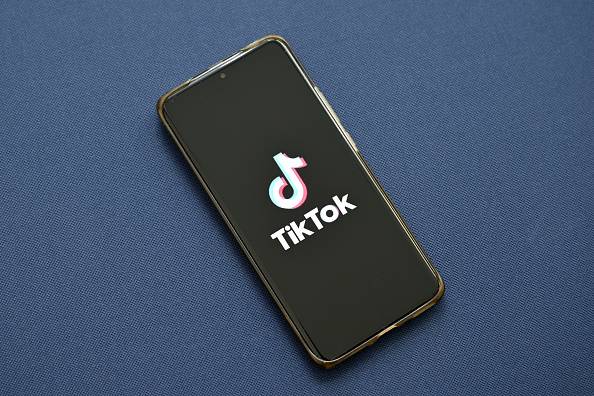
The US’s considerations about TikTok’s information practices spotlight a important situation: management over information. (CFOTO/Future Publishing by way of Getty Photos)
The USA authorities’s potential ban on TikTok has caught the world’s consideration, sparking debates about information sovereignty, nationwide safety and the affect of overseas know-how corporations. But, whereas this battle unfolds between a superpower and a Chinese language tech large, a bigger story is brewing elsewhere. The subsequent one billion web customers will come from Africa, and this demographic shift places the continent squarely on the centre of the digital financial system’s future.
With the fastest-growing web penetration charges on the earth, Africa is poised to change into the digital financial system’s most vibrant frontier. Thousands and thousands of younger, tech-savvy Africans are utilizing platforms like TikTok, Instagram and Fb to create content material, construct companies, and foster communities. These platforms have built-in African economies into international markets, providing alternatives for financial development and cultural alternate.
However, because the TikTok saga demonstrates, counting on overseas platforms comes with important dangers. Selections made in Washington, Beijing and Silicon Valley can reverberate throughout the continent, disrupting livelihoods and fragmenting digital ecosystems. If African international locations fail to behave decisively, they danger turning into collateral harm in international tech wars.
The US’s considerations about TikTok’s information practices spotlight a important situation: management over information. In right now’s digital world, information is the brand new oil — a worthwhile useful resource that powers economies and shapes insurance policies. But, a lot of Africa’s information is hosted on overseas servers, managed by exterior entities with little accountability to native stakeholders.
African nations should prioritise information sovereignty by growing sturdy insurance policies that guarantee native management over information storage, entry and utilization. International locations resembling Kenya and Nigeria have taken steps concerning information safety legal guidelines, however extra must be performed to create a unified framework throughout the continent. By securing their digital gold, African nations can safeguard their residents’ privateness whereas creating alternatives for native companies to thrive.
The TikTok debate exhibits the vulnerabilities of over-reliance on overseas know-how. Platforms that tens of millions rely on for revenue, schooling and social interplay could be restricted or banned in a single day, leaving customers stranded.
The answer lies in constructing resilient digital ecosystems. African governments and personal sectors should spend money on homegrown tech platforms that mirror native values and priorities. Success tales resembling M-Pesa and Flutterwave present that Africa has the expertise and innovation wanted to create global-standard options.
The TikTok saga raises a sobering query: are we heading towards a fragmented international web? If nations more and more prohibit platforms primarily based on geopolitical considerations, the seamless integration of digital economies might unravel. For Africa, this may imply navigating a fractured digital panorama the place entry to international audiences and markets is now not assured.
However fragmentation may be a possibility. African nations can place themselves as leaders in selling interoperability and digital inclusivity. By championing open requirements and collaborating by frameworks just like the African Continental Free Commerce Space (AfCFTA), Africa can construct a unified digital market that connects its one billion future web customers whereas integrating with the worldwide financial system.
Imported know-how usually arrives in Africa beneath the guise of innovation, however the continent should scrutinise its long-term results. Who advantages from these platforms? Do they empower native communities or extract worth with out reinvesting? Are they inclusive, or do they exacerbate present inequalities?
African governments should set up mechanisms to judge the social, financial and cultural implications of overseas platforms. On the similar time, native innovators ought to step as much as create platforms that deal with Africa’s issues and alternatives. By mixing innovation with accountability, Africa can form a digital financial system that serves its folks somewhat than exploiting them.
The TikTok saga serves as a wake-up name: the choices made right now will decide whether or not Africa turns into a digital powerhouse or a passive client in a fragmented tech financial system.
African governments should prioritise information sovereignty, spend money on native tech ecosystems and advocate for honest international digital insurance policies. The non-public sector should help homegrown innovation, whereas civil society ensures inclusivity and accountability.
Africa’s digital future isn’t just about know-how; it’s about empowerment, fairness and resilience. Because the world’s digital focus shifts towards Africa, the continent has a possibility to outline its position within the international tech panorama — and to make sure that the following billion web customers come on-line in a method that advantages everybody.
Ian Mangenga is the founding father of digital neighborhood incubator Digital Woman Africa.